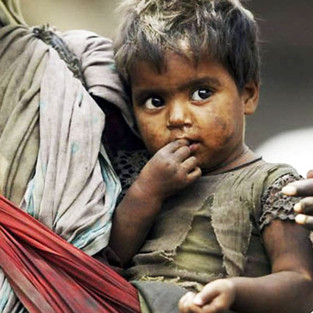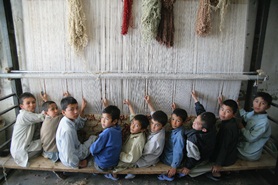I wanted this post to be more than a simple list of cultural tips and travel etiquette. I wanted to find an umbrella to allow me to include my thoughts on ethical, sustainable, responsible and eco travel travel- which are all terms we hear so much about today. These discussions are all about being aware of the impact, positive and negative, travellers have on the world and the people we meet along the way. So, I have decided upon the term “respectful” travel, which I hope can in some way encompasses all of these. To me, a lack of respect for the planet and other people is one of the greatest causes of misunderstanding, harm and ultimately hate and injustice in the world today. Can you imagine a world where we truly treated each other with respect.
Some big understandings about RESPECT to consider first
Ask yourself if you live a respectful life: Unfortunately, the trouble is that so many people in our world don’t really know what respect is and most certainly don’t live respectful lives. If you don’t live respectfully when they are not travelling, there is little chance that you will suddenly “get it” when you leave home. You have this moment only once, so you need to choose carefully how you want to live it. Chose to act thoughtfully, remembering that you are not the most important person in the world. Make a contribution to the world. Do no intentional harm to others. Refuse to accept the exploitation and inequalities that exist in the world. So, a rather deep start but I challenge you to spend some time reflecting on what you see if you hold a mirror up to your life……..
Believe in the goodness of all people: The world so often portraits the darkness- darkness sells. We see so much bad that it is easy to forget that good even exits. This makes us frightened of what we don’t fully understand. I travel with the simple belief that people are basically good. It fits my “travellers bell curve theory” (that 10% of stuff will be not so good, 10% will be amazing and the other 80 % just as you thought it would be). 80% of people just want to raise their families in peace. They work hard and do the best they can, often against unbelievable odds. They are just like you and me. If you believe this, you will find room in your heart to listen to their stories and have a genuine desire to help where you can. It is way easier to respect someone if you are not looking over your shoulder, expecting the worst and questioning the motives of everyone you meet.
Recognise your own prejudices and bias: We all have them so at least try to name them. When you respond in a particular way- to a person or circumstance, ask your-self why you felt that way, what was this response saying about you? Before you label something as barbaric or disgusting, ask yourself if this is a values decision or simply a cultural difference. I’m sure we could classify a number of our western behaviours as barbaric or disgusting if we looked at them from the outside, through a different cultural lens. Why is it we feel OK about judging other cultures but are less able to judge our own…..but that’s another post.
Understand the context: Misunderstanding or ignorance of the context of a country and culture, often leads to misunderstanding. Understand the history of the country, the religion and the politics. Ask questions to clarify. People love it when you show some knowledge of their country and are then willing to tell you more. This will give you an insight into the sensitivities that may offend. At the end I’ll list a few of the big ones from our experience.
Now some specific actions and some do’s and don’ts.
Remember just look around you and see what other people are doing- that’s the best indicator!
Manners are always manners- so use them- ALWAYS- NO EXCUSES: Mostly, if its rude, unkind and inappropriate at home it is probably rude, unkind and inappropriate when travelling. When you look at this list, you will see the things are ALL very obvious!
· Don’t shout and lose your cool- Even when you are frustrated beyond belief, and you will be- smile- be assertive and stay CALM.
· Be patient and wait your turn. This can be very hard when they are pushing in around you and that seems the cultural norm.
· Don’t be afraid to say no -respectfully and with a smile.
· Say hello, acknowledge people, say thank you and goodbye.
· Take food and drink offered graciously- even if you don’t fancy congealed ducks’ blood for breakfast.
· Try and start a conversation in a friendly welcoming way.
· Smile, smile, smile and laugh easily.
· Acknowledge kind acts.
· Look after the property of others as you would your own.
· Ask permission where appropriate
· Apologise if you unintentionally offend and forgive the mistakes of others
· Be punctual and reliable.
· Do what you say you will do- never attempt to trick or deceive- sometimes being intentionally vague or misleading is even worse.
· Never laugh at others mistakes or confusion or speak unkindly about them.
· Offer help to those that need it- a seat to a local on a bus, a hand to someone carrying bags.
If a place offends your values- don’t go: It’s that simply. There are times when you need to decide if you find a place so offensive that visiting would somehow make you complicit in supporting a regime that you find abhorrent. Oppression and disregard for basic human rights (especially those of women and children) makes me very angry. We often see customs that we do not agree with but can tolerate- but you will have to draw your own lines beyond that. A word of caution ask how your views on that country have been formed in the first place. Your own bias and a biased media may have resulted in a mistaken opinion. If you go you may discover that the impression you had is not valid- you may learn something , become more tolerant or even change your opinion. Indeed, the money you bring to the country may even make a small difference in the life of someone. So, sorry no easy answers for this one.
Communicate respectfully: Make sure you understand the way that different people communicate. Learn a little bit about their language: Showing someone that you have made the effort to learn their language not just expected them to speak yours, goes a long way. We have a spreadsheet (of course I’m a teacher) with our basic travellers' language for every country we have visited. Our French and Spanish goes a bit further but for the rest there are about 100 phrases and words. Download some offline apps with lessons and make sure one is some sort of offline translator (Google translate only works when you have data or WIFI). And by the way, be careful or non-verbal communication like gestures and eye contact which can interpreted in different ways.
Use valuable resources respectfully: Water or Electricity may be precious and should not be wasted. Some foods are a special treat for honoured guests. Know this so you can acknowledge the kindness. Don’t look like a selfish tourist.
Spend your dollars ethically: This could actually be a post on its own- in fact there are hundreds of great resources out there in this space. Put simply, this just means trying to make sure your hard-earned dollars don’t sustain businesses and structures that exploit others and damage the environment. For me personally I want support women-owned businesses. I believe that empowering women , empowers the world. I also buy products from Cooperatives and am interested in Fair Trade suppliers.
Take photographs respectfully: Imagine if you were outside your house and a car stopped and took a picture of you. You would be at the best surprised and at the worst scared or angry. Some people love having their photos and actually ask you to photograph them, for others it is very rude. Simply, smile and ask permission with gestures. If they so no, smile, nod and walk away. This is super important if there is any chance you may use their photo on the internet where the picture could be seen to say something about the person or their home.
Dress Respectfully: This isn’t a tough one! Conservative countries (including religious conservatism) expect women to cover certain parts of their bodies. Even men have codes of dress. Find out what they are and follow them. I’d also like to add that sometimes it isn’t appropriate to dress in local traditional clothing. This can offend so take care.
Treat other creatures respectfully- don’t make the crisis any worse. Don’t ride elephants, swim with captive dolphins or take photos of any captive animal. Your money just fuels the inhuman treatment of animals. Animals are not here for your entertainment. Some sanctuaries are not what they promote. Look VERY carefully. Make sure that guides, don’t “chase” animals so that tourists can take photos. Remember, it is called wildlife for a reason. Leave animals where they belong and never feed them. Don’t try local dishes that include endangered animals. NEVER buy souvenirs made from endangered species, like ivory or turtle shell jewellery. And finally, don’t touch or walk on coral reefs.
Treat the environment respectfully- little things all add up. You will see many environmental disasters on your travels and at times will feel overwhelmed by the rubbish dumps full of plastic bottles behind a pristine beach in Bali. We can ALL make a difference. Imagine if everyone stopped using single use plastic bottles! Here are some basics you could consider:
· Try not to buy plastic single use items (straws, cutlery, packaging, water bottles, plastic bags, hotel toiletries)
· If you are buying new look for travelling gear that is ethically and sustainable made or simply use the old stuff you have- don’t buy or take more than you need.
· Take reusable items instead (drink bottles, straws, hot water flask, storage containers, shopping bags, cutlery)
· Look for services that actually talk about sustainability (maybe with an offset plan)
· Use reef friendly sunscreen
· Don’t take souvenirs or leave your mark on the environment
· Take your rubbish with you- and take a few other bits as well
· Recycle when you can
· Turn lights and AC off when you don’t need it
· Use water wisely
· Don’t have your room cleaned every day or your linen changed as often.
· Use e-tickets, e-books etc so you print as little as possible, don’t collect cards, brochures and maps (photograph them).
· Travel by land and public transport when you can- we love this anyhow.
· Take less luggage- it all adds up.
· When you see an organisation doing a great job concerning the environment, tell them you appreciate it and post it wherever.
· Stick to trails when hiking.
· Wash your clothes yourself using good liquid- commercial laundries are not always environmentally conscious.
· Buy local food in markets when you can.
· When you get home think about carbon offsetting which allows you to contribute to projects that reduce greenhouse gases. You can actually calculate your carbon footprint and get an estimate of how much it would cost to offset the emissions caused by your flights etc.
Look for ways to give back- help the local community become richer- not big business. The key idea when you are on the road is to choose LOCAL and not big business when you can. Can you find local products, accommodation, transport, tour guides, restaurants and even charities? Buy souvenirs from local artists not those made in China- they are special. This is not always easy as there is often an unseen “boss”- but do the best you can. Maybe, volunteering at the local level also works for you. A word of caution, despite its popularity volunteering is not for everybody. It is becoming big business and you need to look very carefully before you commit. Maybe once you get home you can think of helping someone from a place you visited with a small micro loan. I love the work of Kiva loan but there are others , where you give a small loan which is eventually paid back to you.
Be respectful to your hosts: When you are a guest in someone’s home, you should always be respectful and polite about the standard of living. Never criticise your host or their country.
Don’t give to beggars and especially not children. This is a tough one as it will break your heart to see such poverty and know that a few dollars may help someone. Sadly, many beggars specifically target tourists and are controlled by a “boss” who keeps part of the profits. They use what-ever strategy they know will bring in the money. That often means exploiting children, the elderly or the disabled. Please don’t give to children (not pens, sweets or anything). Children are often begging because they have been sent out to do so and as a result are not at school. Giving money just maintains the cycle of their abuse. Give to a carefully selected charity instead.
Don’t give in to touts- but also don’t be aggressive towards them . Touts will be everywhere, but when you give into them you reinforce the practice. When you consider the high rates of unemployment and poverty, you can totally understand why they need to do what they do. Touts are usually trying to get you somewhere where they will make a small commission. But sometimes their tactics cross a line and become aggressive, intimidating and even dangerous. Try humour and a smile first. If that doesn’t work, keep walking , be firm, make eye contact and let them know your answer clearly and politely, and then ignore. If a driver or other asks for a tip or a greater than agree price for his service – do not pay. Smile and pay the exact money you agreed (one very good reason to always have exact money). They may abuse you but smile` and clearly say NO. If someone offers to help you in what appears out of kindness and then asks for payment or someone takes payment and keeps standing with his hand- out don’t give in. You may just have to walk away.
Bargaining respectfully: Bargaining should be fun. The actual price can be up to ten times less than the starting price. Despite this system of purchasing, that many westerners find confusing, most traders are honest and getting a little ripped-off is just a fact of travelling - after all, you CAN afford it, so don't get too fussed. Remember that NOT every price is negotiable. Sometimes the western approach of asking a price and then leaving if you are not interested can be considered as an insult, even though it is not intended as one- you simply wanted to know what it cost and probably there was no price visible on the item. Bottom line is if you don't have serious intentions of buying - don't ask the price and certainly don't start negotiating. If buying a 'daily item' like a bottle of water, ice cream, bus ticket or similar, these are not items you usually bargain for.
Greet people respectfully: This is partly manners but is also more. Greeting someone starts a relationship and a smile, coupled with a genuine interest in the person, gets things off to a good start. The simple rule is to follow the greetings of others. Offer a hand if one is offered to you, kiss on both cheeks if that is the norm and bow respectfully if you see others doing the same. Don’t assume men will want to shake hands with a woman or indeed even acknowledge them. Don’t take this personally.
Remember hygiene : Personal hygiene is cultural. Spitting and coughing up your lungs is repulsive in some cultures and totally accepted in others. So, sneeze and cough into your inside elbow not your hands, don’t blow your nose in public and don’t touch your feet, cut or pick your toenails.
Eat respectfully: Eating is cultural so there are lots of small rules about this, but a few general ones may include:
· Eat with your right hand (the left hand is for the bathroom)
Respect other people’s personal space: Personal space is cultural. On a train in China an old lady came right up beside me and started watching Downtown Abby on my iPad with me. She called her friend over to sit on the other side and offered me some food. The next morning, I woke to 2 men sitting quietly on the end of my sleeper bunk. They may invade your space, but the intent is not to offend.
Tips as the locals do: I have always struggled with this one. I admit to being a bit of a socialist and an Aussie. I believe that all workers should receive a fair, reasonable wage. I think tipping is a flawed capitalist trick so that the boss can get away with paying the workers less and therefore make more money. That being said, that is not how the economic structures we live within. So, whilst I know by tipping, I allow those flawed and criminal (in my mind) wage structures to continue, I think in this case my resistance is futile. So, I ask about and tip as per the local norm (rather begrudgingly in most cases).
Follow the local laws- even if you don’t agree with them: Some laws are rubbish, established by corrupt systems to maintain control. But, once you decide to visit a country, you are by default agreeing to respect their laws, so suck it up. Also, you NEVER want to be on the wrong side of the law in a foreign country, so the risk is to great. I had a colleague refused an exit visa from Qatar because of an unpaid parking fine.
Keep touch in public respectfully: Touching in public is VERY cultural. Getting this wrong can cause abuse and even end you up in jail. Kissing and holding hands should be avoided to be on the safe side.
Watch your feet: This may sound silly but in many cultures your feet are considered dirty. You don’t put them on furniture, face them towards a religious artefact or touch them (or someone else’s)
.
Engaging in the sex industry is NEVER respectful to those it exploits. Don’t get me started on this one! The fact that I even considered adding this to the list makes me furious. I am passionate about the rights of women and children and am forever angry that man openly chose to exploit them. Yes, it is a choice and one that every man on the planet should be ashamed of. Ok, off my “angry platform”- breath- it is never, ever acceptable to exploit a women or child for sex- end of story.
Travel respectfully: Ok this is added on the end as a personal moan. There are some things that annoy me so much that I want to push selfish travellers off the bus. But I give new travellers the benefit of the doubt, maybe no one has ever told them the basic rules of travelling- so here they are- and you will now never have an excuse for being a selfish traveller again:
· Get onto the plane with everything you need down for the flight in your hands. Drop it on your set and quickly put your bag up, stepping into a seat where possible. Don’t spend 10 mins blocking the aisle and unpacking your bags.
· Think of the people on the other side of the thin hotel room. Parties belong in bars not camp sites.
· Have all the documents you need in an outside pocket- ready. Don’t start looking for them after you’ve lined up for 10 mins.
· Keep your feet off chairs and the back of airline seats.
· If you really have “to go” and can’t wait until a bathroom- make sure you dispose of “it” respectfully.
· Don’t take up 2 seats with your bag when others are standing.
· Don’t hog the window with the view or fresh air. Smile and sit back and share.
· Don’t take 20 rashers of bacon on a buffet leaving none for anyone else
· Don’t reserve places on beach chairs or the sand with your towel and go off for 3 hours shopping!
NOW SOME COUNTRY SPECIFIC TIPS
There are some countries where the cultural practices are rather different than the west and can be rigid- so a mistake can more easily cause offense. Here are a few of those.
Japan: Take off your shoes. Basically, when you enter a home take off your shoes. Sometimes in public places, you might be handed a bag to carry your shoes around with you. It is never ok to keep your shoes on.
On the other hand, slurping food and drinking from a bowl are fine.
Do not ever pass food with chopsticks. If you need to pick something up from a serving dish, do so with the “wrong end” of the sticks. Never, ever stand chopsticks up vertically in a bowl of food. If you’re dining out at a restaurant, remember not to refill your own water glass (it’s okay and even expected to fill your dining companion’s glasses). Never tip.
China: What offends an older person may be very different than what might put off a younger person. Death is never discussed in casual conversation. The concept of “saving face” is still practiced in China. That means you never openly humiliate or criticise someone in public, not even in a joking way. Chinese are not as “touchy-feely” as some foreigners so keep a respectful distance.
France/Italy: Italy and France share a few customs. Do not touch the food for sale. Point to the item you’d like. It is also rude to walk into a shop and not acknowledge the shop keeper. Best not to take wine (the French are wine experts) or flowers (some represent funerals) if invited to dinner. Don’t forget the double kiss. Both will probably refuse your offer to help in the kitchen. Dress well when you go out as both cultures value style and first impressions matter. In Italy it is common for the guest to pay- bill splitting is unusual. The host may refuse your offer to pay a few times, but you need to keep offering and they will finally accept.
UAE: The culture in the United Arab Emirates is very conservative. Unless you’re on a beach, cover up. Short shorts and anything that exposes a lot of skin will be tolerated by foreigners, but it’s not respectful. Drink responsibly in a hotel bar only. No public displays of affection , including hand holding (sometimes they won’t even shake hands to ensure the sexes don’t touch). If you do touch, keep the left had away.
Greece: The “thumbs up” gesture in Greece is rude and double kisses are all the go. Don’t forget that there are old and new grievance with Turkey so best to stay out of that one. It’s normal to see 2 or more generations living under one roof, so don’t look surprised!


































Comments